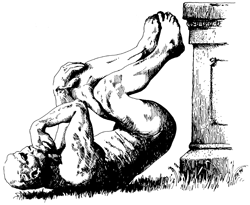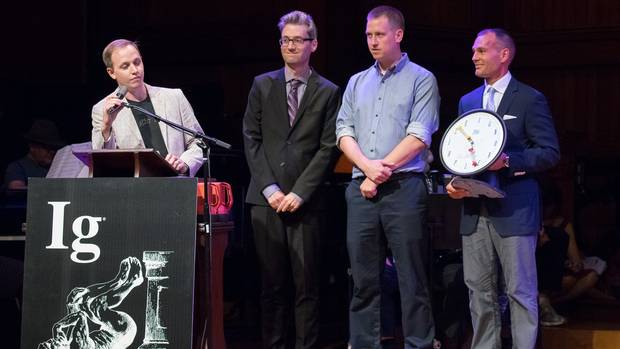
Congratulations to the team of doctoral graduates and professors from the Department of Psychology for winning the infamous Ig Nobel Peace Prize for their study published last year, “On the Reception and Detection of Pseudo-Profound Bullshit.”
The Ig Nobel Prizes "honor achievements that make people LAUGH, and then THINK. The prizes are intended to celebrate the unusual, honor the imaginative — and spur people's interest in science, medicine, and technology," according to the Ig Nobel website.

Gordon Pennycook (alumnus, now a postdoctoral fellow at Yale University), Prof. Emeritus Allan Cheyne, Nathaniel Barr (alumnus, now a faculty member at Sheridan College), Prof. Derek Koehler, and Prof. Jonathan Fugelsang where celebrated last night in Boston for their scholarly study on bullsh_t, which, not surprisingly, received a lot of media attention when it was published in November 2015.
This Ig Nobel-recognized work is not the first of Pennycook's to make an impact. As a PhD candidate at Waterloo he, along with Barr, then a postdoc at Waterloo, co-led a study on smartphone use and lazy thinking, which was covered by more than 700 media outlets worldwide.

Researchers Gordon Pennycook, Derek Koehler, Nathaniel Barr and Jonathan Fugelsang accept their 2016 Ig Nobel prize at Harvard University for their University of Waterloo-based study called On the Reception and Detection of Pseudo-Profound Bullshit. (Photo by Howard Cannon for The Globe and Mail)
Read more about the Ig Nobel prize.
Read The Globe and Mail's coverage of the Waterloo team's Ig Nobel win.